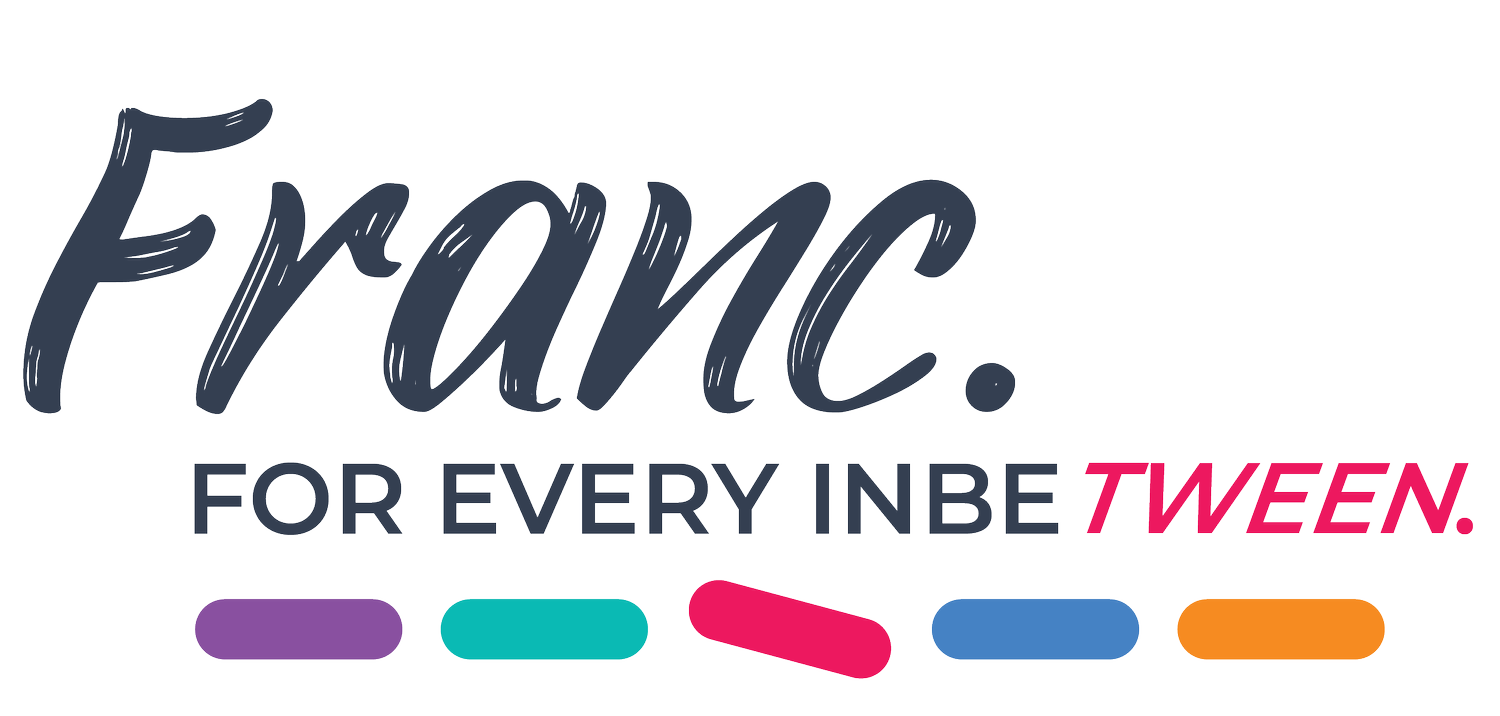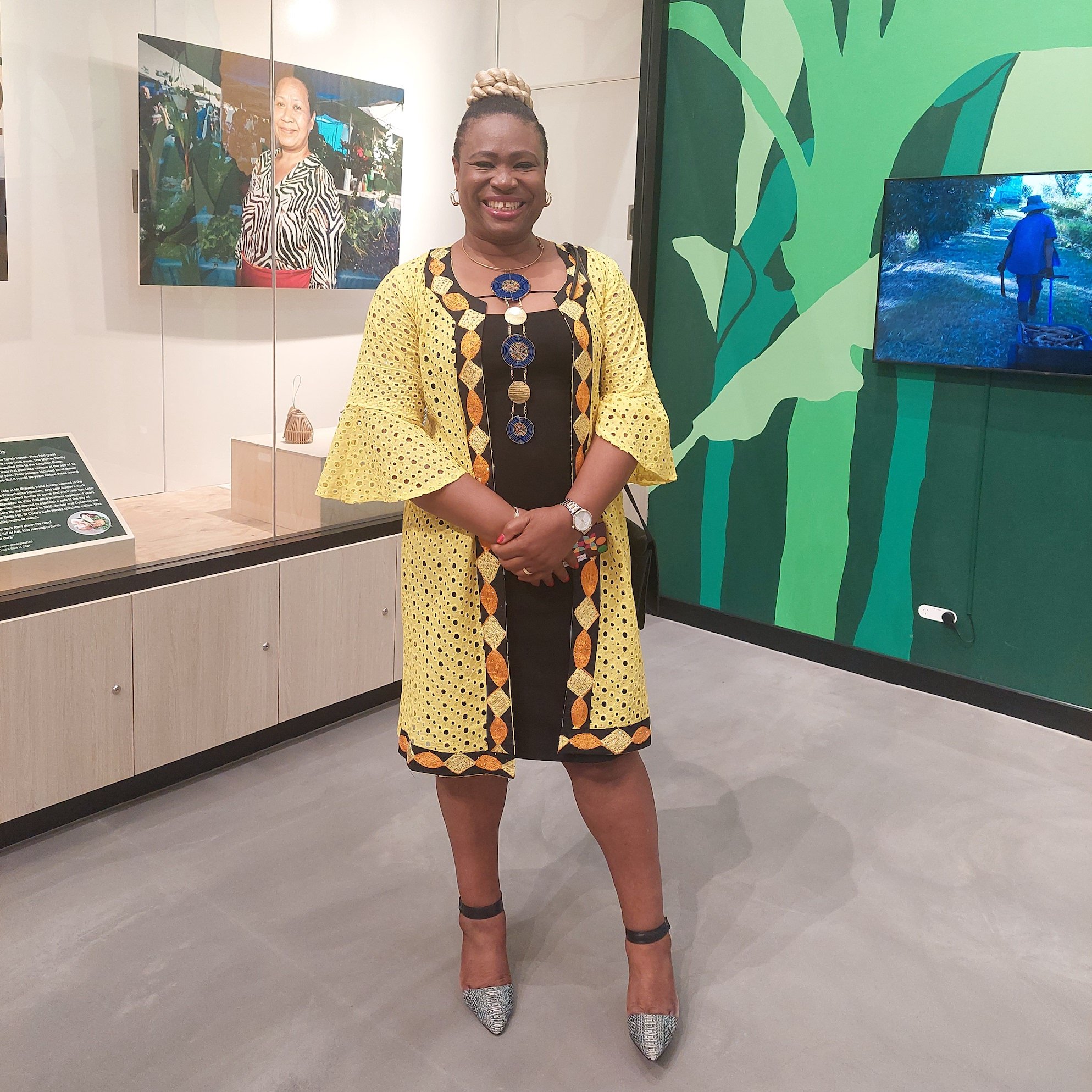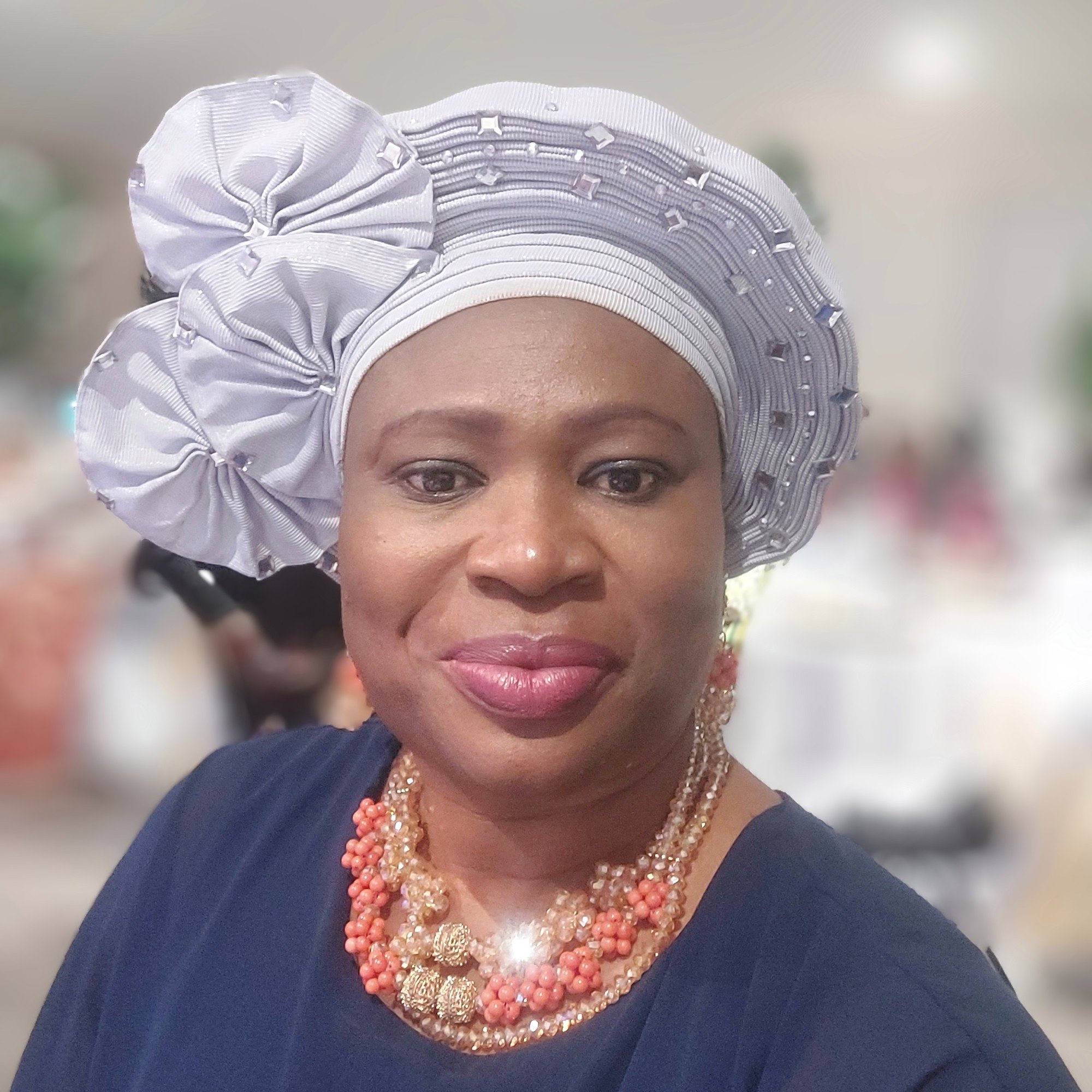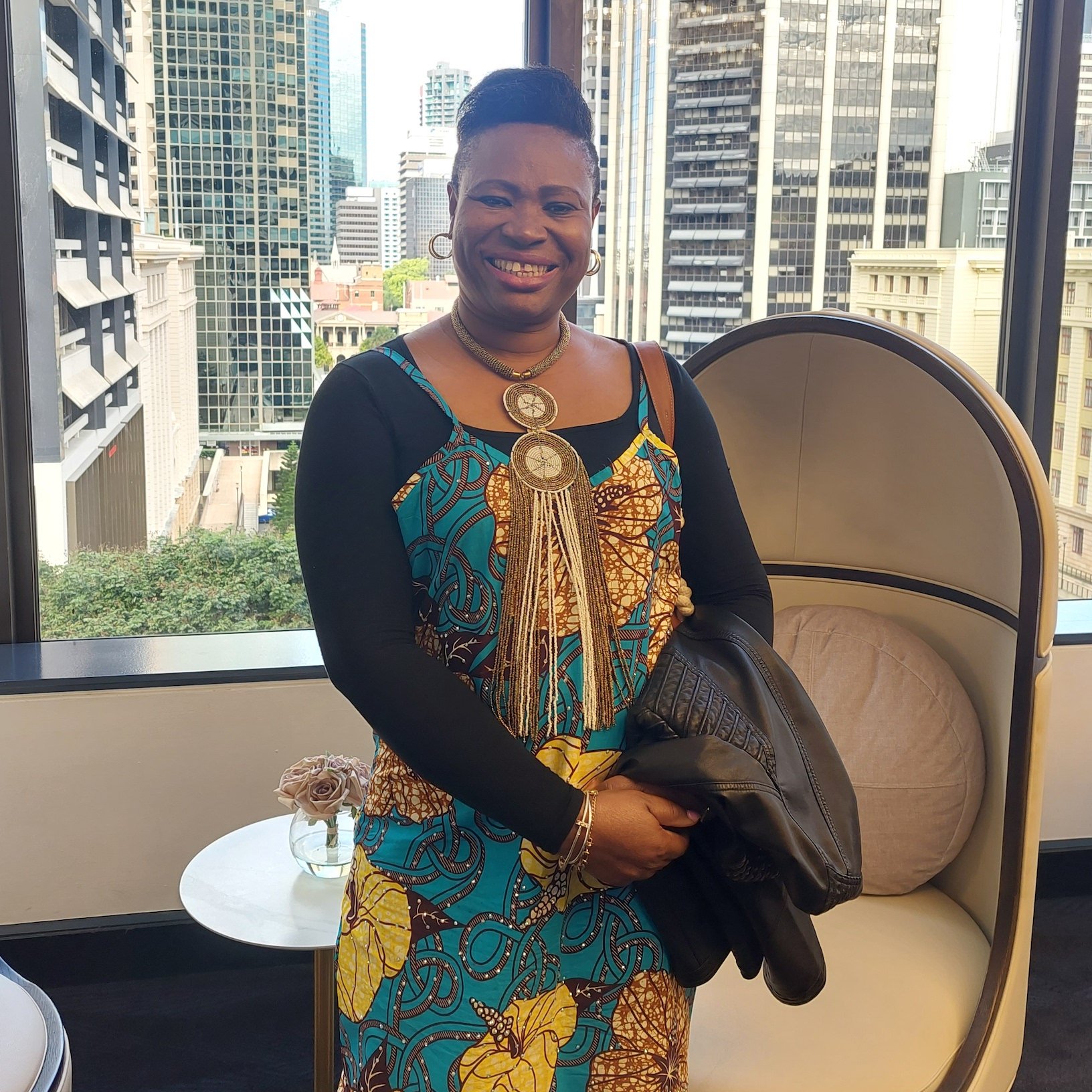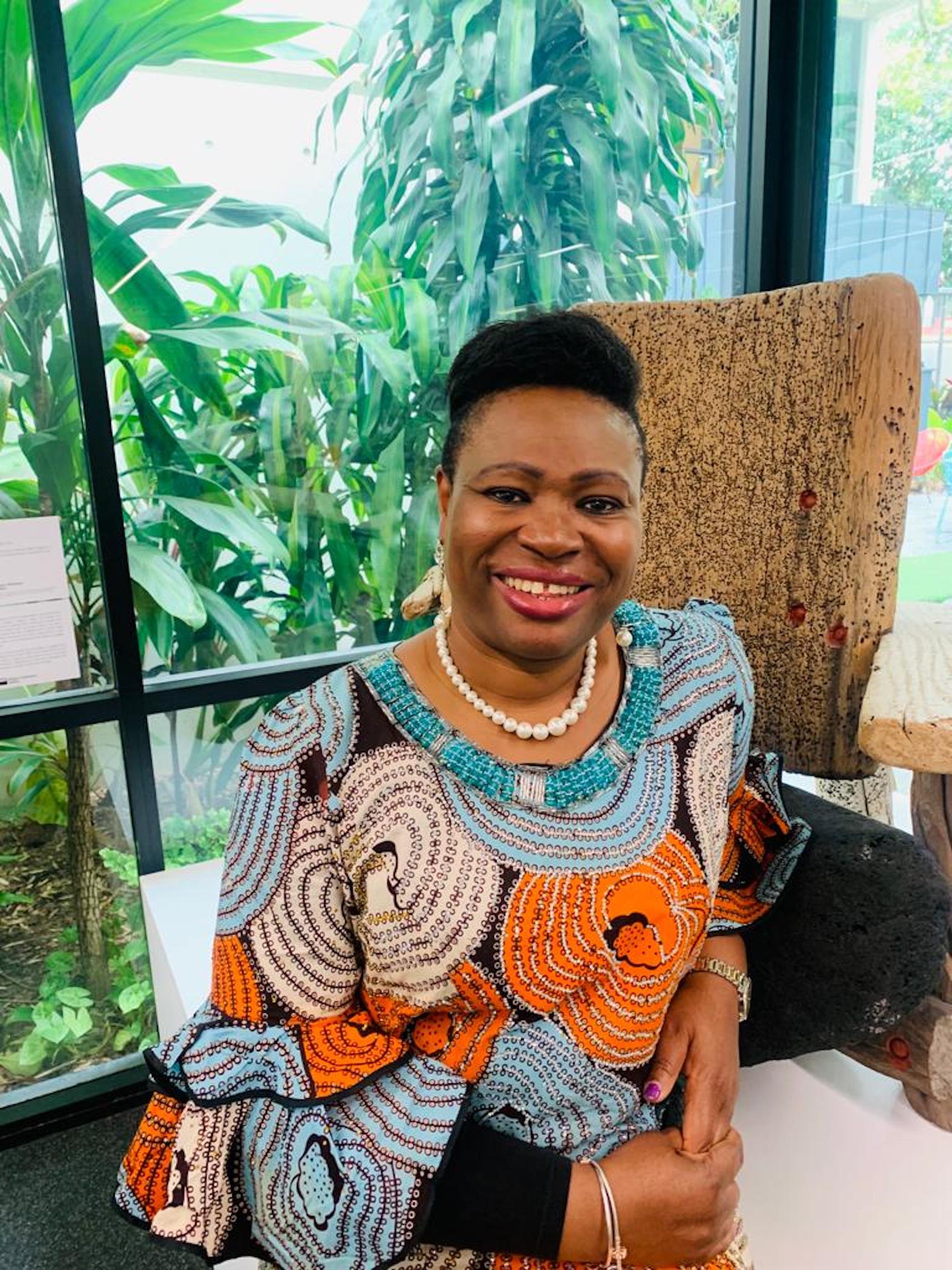Community Engagement: Orode Eke-Okoro
Orode Cyndi Eke-Okoro. Orode is a remarkable Nigerian Australian, currently serving as the President of the African Professionals of Australia (APA). Beyond her role as APA President, Orode serves as a Contract Coordinator for the Faculty of Health at the Queensland University of Technology. She also co-owns a successful business venture(Jeovic Community Care) with her partner, showcasing her versatility and entrepreneurial spirit. In addition to her professional roles, Orode is also a dedicated mother to 11-year-old twins. She and her husband migrated to Australia in 2011, and since then, she has made it her mission to contribute positively to the culturally diverse community she now calls home.
You originally studied law - can you tell us about your educational background and how it has shaped your career path to date? Certainly! I obtained a Law Degree from the University of Benin, Nigeria. While my passion for law was evident, my career path took a different turn when I migrated to Australia in 2011 under the Skilled Migration Visa with my husband. Although I was unable to practice law immediately in Australia, my passion for community development and empowerment led me to explore other avenues where I could make a difference. This led me to further my education with a Diploma in Legal Studies, Certificate III in Disability, and Certificate IV in Legal Studies. My diverse educational background, including the Diploma in Community Services and Certificate IV in Pathology, has been instrumental in shaping my career path and enabling me to pursue roles in various industries. Though my career diverged from traditional law practice, my legal background has been instrumental in shaping my approach to problem-solving, advocacy, and the ability to analyse complex issues critically. These skills have been transferable and advantageous in my subsequent roles, allowing me to excel in establishing productive relationships and navigating diverse sectors
How would you describe your professional journey so far, including the roles you have held and the industries you have worked in? My professional journey has been diverse and enriched by various experiences in different industries. I have worked in the legal sector, banking, healthcare, and community services, each role contributing uniquely to my growth as a professional. My roles as a Customer Service Officer at National Australian Bank and a Nursing Assistant at the Australian Red Cross Blood Service exposed me to the importance of exceptional customer support and engaging with diverse communities. In the healthcare sector, I served as a Direct Support Worker at Cerebral Palsy League, providing care and support to individuals with disabilities. This experience sparked my interest in community empowerment, leading me to pursue a Certificate III in Disability and a Diploma in Community Services. Additionally, my time as a Community Care Employee at Uniting Care Ageing further deepened my commitment to community development and support.
Currently, as the Contract Coordinator for the Faculty of Health at Queensland University of Technology and the President of the African Professionals of Australia, I am continuously engaged in fostering meaningful connections and empowering communities through collaboration and advocacy.
What motivated you to pursue a career in your current field? The desire to make a positive impact in the community has been a significant motivating factor in my current career path. Working in healthcare and community services exposed me to the challenges faced by vulnerable individuals and diverse communities. I was driven by the belief that community development equals community empowerment, and I was passionate about facilitating positive change. Also being a mother of twins, I am driven to create a better future for them and others like them. As President of the African Professionals of Australia, I saw an opportunity to bridge gaps within the African diaspora, empower professionals, and create a platform for collaboration and growth. The satisfaction derived from making a difference in the lives of others and advocating for their rights continues to fuel my dedication to community development and empowerment. I am passionate about empowering communities to reach their self-determination visions and goals through support and collaboration.
As President of African Professionals Association (APA), what are your main responsibilities and goals for the organisation? My main responsibilities revolve around providing strategic leadership and vision to the organisation, overseeing the organisation's operations, and representing the APA in various capacities. I work closely with the executive team and members to create and implement initiatives that promote professional development, networking, and community engagement. I am actively involved in engaging stakeholders, building partnerships, and advocating for the interests of our members and the African community. My primary goal for the APA is to foster a strong and inclusive community where African professionals can thrive and achieve their aspirations in Australia. We aim to provide resources and support to our members, empowering them to excel in their respective fields and contribute positively to the broader community.
Can you highlight any key achievements or projects that you have led during your tenure as President of APA? I am proud to have successfully organised a biannual conference shortly after assuming leadership. This event brought together professionals from various industries, facilitating meaningful networking opportunities and knowledge exchange. Additionally, I led efforts to increase the visibility of the APA by organising quarterly networking and leadership meetings. These gatherings have provided valuable insights, enhanced professional connections, and contributed to the personal growth of our members. Through advocacy and representation, we have worked to raise awareness of the challenges faced by African professionals in Australia and have collaborated with various stakeholders to address issues concerning our community
What advice would you give to young professionals just starting their careers in the not-for-profit sector?
Stay true to your passion: The not-for-profit sector requires genuine dedication and passion for the cause you are working for. Your commitment will drive positive change.
Embrace collaboration: Working in the not-for-profit sector involves engaging with diverse stakeholders. Embrace collaboration and build strong relationships to achieve collective impact.
Be adaptable and open to learning: The landscape of the not-for-profit sector is ever-evolving. Be open to learning new skills and adapting to changes to make the most significant impact.
Advocate for your cause: As a young professional, your voice matters. Advocate for the issues you are passionate about and be a champion for change.
Practice self-care: The work in the not-for-profit sector can be emotionally challenging. Take care of your well-being to ensure you can continue making a positive impact.
As Managing Partner at Jeovic Community Care, what are your thoughts on the future of disability support in Australia? I believe the future of disability support in Australia is promising. There is an increasing awareness of the importance of inclusivity and accessibility, leading to a shift towards more person-centred approaches to disability support. Innovations in technology and research are also paving the way for improved services and interventions. The focus on individual empowerment and choice is growing, enabling people with disabilities to have more control over their lives and support. However, there are still challenges to overcome, such as funding constraints and ensuring equal access to services for all individuals with disabilities. It is crucial for stakeholders, including the government, organisations, and the community, to work together to address these challenges and create a more inclusive society for people with disabilities.
What are some of the most rewarding aspects of working in the disability sector? Working in the disability sector offers numerous rewarding experiences. The most fulfilling aspect is witnessing the positive impact that support and empowerment can have on individuals with disabilities. Seeing people achieve their goals, gain independence, and thrive in their communities brings immense satisfaction. Additionally, the strong sense of camaraderie and collaboration within the disability sector is gratifying. Being part of a community that is dedicated to improving the lives of others creates a sense of purpose and fulfilment in one's work. Also, working in the disability sector allows me to collaborate with passionate and dedicated professionals who share a common goal of making a meaningful difference in the lives of others. It is heartwarming to see the sense of community and empowerment that emerges through our collective efforts.
What are some of the biggest challenges you've faced in your career? One of the significant challenges I have faced in my career is navigating a career transition after migrating to Australia. The need to adapt to a new environment and explore alternative career paths presented its own set of hurdles. However, this experience taught me resilience and the value of embracing change as an opportunity for growth. Another challenge has been effectively balancing my professional commitments with my role as a mother. Juggling various responsibilities requires careful time management and prioritisation, but it has also enriched my ability to empathise and connect with others facing similar challenges.
What are your thoughts on the importance of diversity and inclusion in the workplace? Diversity and inclusion are fundamental pillars of a thriving and progressive workplace. Embracing diversity in all its forms, including cultural, racial, gender, and abilities, enriches an organisation's perspectives and promotes creativity and innovation. Inclusive workplaces foster a sense of belonging and value individual contributions, which leads to higher employee satisfaction and retention. Moreover, diverse teams are more capable of understanding and meeting the diverse needs of clients and customers. By championing diversity and inclusion, organisations can create a positive work environment that attracts top talent, enhances productivity, and positively impacts the community they serve. It is imperative that we continuously strive for inclusivity to build stronger and more equitable workplaces and communities.
Franc’s Fast Five
Favourite subject in school? English
What is the first thing you do each day? Pray and plan for the day
Go-to snack? Ice Cream
What was your last holiday destination? Manchester UK
What are you currently reading? Raising boys
